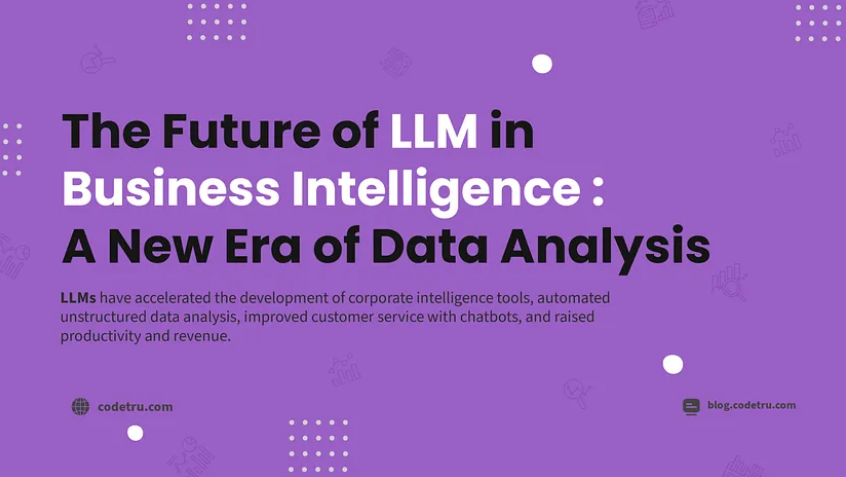Decision Intelligence (DI) is a framework that combines data, analytics, and human judgment to enhance decision-making processes. It integrates advanced technologies like AI and machine learning with traditional decision models.
In today’s world, data is abundant, but actionable insights remain a challenge. According to IDC, global data creation is projected to grow to 175 zettabytes by 2025. DI helps organizations cut through the noise, enabling smarter and faster decisions.
What is Decision Intelligence?
DI is the convergence of data science, social science, and decision theory to guide better outcomes. It leverages predictive and prescriptive analytics to support complex decision-making.
How It Differs from Traditional Data Analysis: Unlike traditional data analysis, which focuses on historical data trends, DI emphasizes actionable insights and anticipates future outcomes. It integrates human judgment with AI-driven recommendations.
The Importance of Data in Decision-Making
- The Shift from Gut-Driven to Data-Driven Decisions: Historically, business decisions relied on intuition. However, McKinsey reports that data-driven organizations are 23 times more likely to acquire customers and 19 times more likely to be profitable.
- Challenges in Making Sense of Big Data: With massive datasets, extracting actionable insights becomes difficult. Gartner estimates that poor data quality costs organizations an average of $12.9 million annually.
How Decision Intelligence Works
Combining AI, Analytics, and Human Judgment: DI integrates AI and analytics to provide data-backed recommendations while allowing human input for nuanced decision-making.
The Role of Predictive and Prescriptive Analytics:
- Predictive analytics forecasts future trends using historical data.
- Prescriptive analytics suggests the best course of action based on predictions.
Examples of Decision Models:
- Inventory optimization in retail.
- Fraud detection models in banking.
- Resource allocation in healthcare.
Applications of Decision Intelligence Across Industries
- Healthcare:
- Using DI, hospitals can predict patient readmission rates and improve care plans.
- Example: Mayo Clinic employs predictive models to enhance patient outcomes.
- Retail:
- DI enables personalized recommendations and supply chain efficiency.
- Example: Amazon uses DI to optimize inventory and enhance customer experience.
- Finance:
- Banks leverage DI for fraud detection and credit risk assessment.
- Stat: Accenture found that 71% of financial services executives prioritize data intelligence.
- Manufacturing:
- Predictive maintenance powered by DI minimizes equipment downtime.
- Example: General Electric’s Predix platform uses DI for operational insights.
Explore Codetru’s Data Analytics services for tailored, industry-specific solutions.
Benefits of Decision Intelligence
- Faster and More Accurate Decision-Making: DI reduces decision-making time by automating data analysis, improving accuracy.
- Reducing Cognitive Biases in Business Strategies: It eliminates biases by relying on data and algorithms, ensuring objective decisions.
- Improved Operational Efficiency: By streamlining workflows and identifying inefficiencies, DI drives productivity gains. Example: Companies adopting DI see a 30% improvement in operational KPIs (Deloitte).
Challenges in Adopting Decision Intelligence
- Data Quality and Integration Issues: Inconsistent and siloed data can hinder DI adoption. Stat: 42% of executives cite data integration as a significant barrier (Forrester).
- Resistance to Change and Trust in AI: Employees often distrust AI-driven recommendations, emphasizing the need for transparency.
- Skills and Knowledge Gap: Organizations must invest in upskilling their workforce to leverage DI effectively.
Future Trends in Decision Intelligence
- Integration with Emerging Technologies: DI is increasingly integrated with IoT and blockchain to enhance real-time decision-making.
- Democratizing Decision Intelligence: Tools are being developed to enable non-technical users to harness DI insights.
- The Rise of Autonomous Decision Systems: AI systems capable of making independent decisions will transform industries, from autonomous vehicles to smart cities.
Case Studies
Real-World Success Stories:
- Walmart uses DI to optimize supply chain logistics, reducing costs by 20%.
- Google applies DI in ad targeting, increasing ROI for advertisers by 30%.
- Siemens leverages DI for predictive maintenance, cutting downtime by 40%.
Conclusion
Recap of the Significance of Decision Intelligence: DI bridges the gap between data and actionable insights, enabling businesses to navigate complexity with confidence.
Embracing Decision Intelligence for Competitive Advantage: Adopting DI is no longer optional; it’s essential for staying competitive in a rapidly evolving landscape. Organizations that leverage DI effectively will lead the way in innovation and growth.
Why Approach Codetru Services?
At Codetru, we combine expertise, innovation, and industry insight to deliver quality, reliable, and scalable IT solutions tailored to your business needs. We stay ahead of trends, leveraging the latest technologies to craft innovative roadmaps and creative approaches for every project. Our industry-agnostic experience and understanding of market demands ensure we identify the right tech stacks and methodologies to keep you competitive. With a focus on aligning our solutions with your goals, we are dedicated to helping you achieve measurable success.
Visit codetru.com







